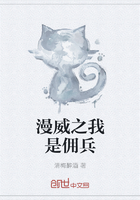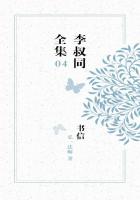After that they went in procession, two banners being carried before them, in one of which was the picture of Virtue, and that of Fortune in the other. The last went before, carried by a semi-quavering friar, at whose heels was another, with the shadow or image of Virtue in one hand and an holy-water sprinkle in the other--I mean of that holy mercurial water which Ovid describes in his Fasti. And as the preceding Semiquaver rang a handbell, this shaked the sprinkle with his fist. With that says Pantagruel, This order contradicts the rule which Tully and the academics prescribed, that Virtue ought to go before, and Fortune follow. But they told us they did as they ought, seeing their design was to breech, lash, and bethwack Fortune.
During the processions they trilled and quavered most melodiously betwixt their teeth I do not know what antiphones, or chantings, by turns. For my part, 'twas all Hebrew-Greek to me, the devil a word I could pick out on't;at last, pricking up my ears, and intensely listening, I perceived they only sang with the tip of theirs. Oh, what a rare harmony it was! How well 'twas tuned to the sound of their bells! You'll never find these to jar, that you won't. Pantagruel made a notable observation upon the processions; for says he, Have you seen and observed the policy of these Semiquavers? To make an end of their procession they went out at one of their church doors and came in at the other; they took a deal of care not to come in at the place whereat they went out. On my honour, these are a subtle sort of people, quoth Panurge; they have as much wit as three folks, two fools and a madman; they are as wise as the calf that ran nine miles to suck a bull, and when he came there 'twas a steer. This subtlety and wisdom of theirs, cried Friar John, is borrowed from the occult philosophy.
May I be gutted like an oyster if I can tell what to make on't. Then the more 'tis to be feared, said Pantagruel; for subtlety suspected, subtlety foreseen, subtlety found out, loses the essence and very name of subtlety, and only gains that of blockishness. They are not such fools as you take them to be; they have more tricks than are good, I doubt.
After the procession they went sluggingly into the fratery-room, by the way of walk and healthful exercise, and there kneeled under the tables, leaning their breasts on lanterns. While they were in that posture, in came a huge Sandal, with a pitchfork in his hand, who used to baste, rib-roast, swaddle, and swinge them well-favouredly, as they said, and in truth treated them after a fashion. They began their meal as you end yours, with cheese, and ended it with mustard and lettuce, as Martial tells us the ancients did. Afterwards a platterful of mustard was brought before every one of them, and thus they made good the proverb, After meat comes mustard.
Their diet was this:
O' Sundays they stuffed their puddings with puddings, chitterlings, links, Bologna sausages, forced-meats, liverings, hogs' haslets, young quails, and teals. You must also always add cheese for the first course, and mustard for the last.
O' Mondays they were crammed with peas and pork, cum commento, and interlineary glosses.
O' Tuesdays they used to twist store of holy-bread, cakes, buns, puffs, lenten loaves, jumbles, and biscuits.
O' Wednesdays my gentlemen had fine sheep's heads, calves' heads, and brocks' heads, of which there's no want in that country.
O' Thursdays they guzzled down seven sorts of porridge, not forgetting mustard.
O' Fridays they munched nothing but services or sorb-apples; neither were these full ripe, as I guessed by their complexion.
O' Saturdays they gnawed bones; not that they were poor or needy, for every mother's son of them had a very good fat belly-benefice.
As for their drink, 'twas an antifortunal; thus they called I don't know what sort of a liquor of the place.
When they wanted to eat or drink, they turned down the back-points or flaps of their cowls forwards below their chins, and that served 'em instead of gorgets or slabbering-bibs.
When they had well dined, they prayed rarely all in quavers and shakes; and the rest of the day, expecting the day of judgment, they were taken up with acts of charity, and particularly--O' Sundays, rubbers at cuffs.
O' Mondays, lending each other flirts and fillips on the nose.
O' Tuesdays, clapperclawing one another.
O' Wednesdays, sniting and fly-flapping.
O' Thursdays, worming and pumping.
O' Fridays, tickling.
O' Saturdays, jerking and firking one another.
Such was their diet when they resided in the convent, and if the prior of the monk-house sent any of them abroad, then they were strictly enjoined neither to touch nor eat any manner of fish as long as they were on sea or rivers, and to abstain from all manner of flesh whenever they were at land, that everyone might be convinced that, while they enjoyed the object, they denied themselves the power, and even the desire, and were no more moved with it than the Marpesian rock.
All this was done with proper antiphones, still sung and chanted by ear, as we have already observed.
When the sun went to bed, they fairly booted and spurred each other as before, and having clapped on their barnacles e'en jogged to bed too. At midnight the Sandal came to them, and up they got, and having well whetted and set their razors, and been a-processioning, they clapped the tables over themselves, and like wire-drawers under their work fell to it as aforesaid.
Friar John des Entoumeures, having shrewdly observed these jolly Semiquaver Friars, and had a full account of their statutes, lost all patience, and cried out aloud: Bounce tail, and God ha' mercy guts; if every fool should wear a bauble, fuel would be dear. A plague rot it, we must know how many farts go to an ounce. Would Priapus were here, as he used to be at the nocturnal festivals in Crete, that I might see him play backwards, and wriggle and shake to the purpose. Ay, ay, this is the world, and t'other is the country; may I never piss if this be not an antichthonian land, and our very antipodes. In Germany they pull down monasteries and unfrockify the monks; here they go quite kam, and act clean contrary to others, setting new ones up, against the hair.














